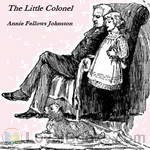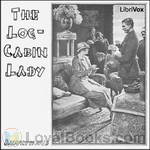|
Books Should Be Free Loyal Books Free Public Domain Audiobooks & eBook Downloads |
|
|
Books Should Be Free Loyal Books Free Public Domain Audiobooks & eBook Downloads |
|
History Books |
|---|
|
Book type:
Sort by:
View by:
|
By: Anatole France (1844-1924) | |
|---|---|
 Gods are Athirst
Gods are Athirst
The Gods Are Athirst (French: Les dieux ont soif, also translated as The Gods Are Thirsty or The Gods Will Have Blood) is a 1912 novel by Anatole France. The story follows the young Parisian painter Évariste Gamelin, who rises speedily from his humble beginnings to a member of the Revolutionary Tribunal in the second and third year of the French Revolution. In brilliant prose, Anatole France describes how Évariste's idealism turns into fanaticism, and he allows more and more heads to roll and blood to flow, placing himself and those he loves into ever greater danger. | |
By: Andre Norton (1912-2005) | |
|---|---|
 Rebel Spurs
Rebel Spurs
In 1866, only men uprooted by war had reason to ride into Tubacca, Arizona, a nondescript town as shattered and anonymous as the veterans drifting through it. So when Drew Rennie, newly discharged from Forrest’s Confederate scouts, arrived leading everything he owned behind him—his thoroughbred stud Shiloh, a mare about to foal, and a mule—he knew his business would not be questioned. To anyone in Tubacca there could be only one extraordinary thing about Drew, and that he could not reveal: his name, Rennie... | |
 Ride Proud, Rebel!
Ride Proud, Rebel!
Drew Rennie, served as a cavalry scout in Confederate general John Hunt Morgan's command. He had left home in 1862 after a final break with his harsh grandfather, who despised him since his birth because of his mother's runaway marriage to a Texan. During the final year of conflict Drew has the additional responsibility of looking out for his headstrong fifteen-year-old cousin Boyd, who has run away from home to join Morgan's command and has a lot to learn in the school of hard knocks the army provides. The story follows the two of them and a new friend, Anson Kirby, through campaigns in Kentucky, Tennessee and later on deeper into the South, first with Morgan and later under Forrest. | |
By: Andrew Carnegie (1835-1919) | |
|---|---|
 Autobiography of Andrew Carnegie
Autobiography of Andrew Carnegie
This autobiography of Andrew Carnegie is a very well written and interesting history of one of the most wealthy men in the United states. He was born in Scotland in 1835 and emigrated to America in 1848. Among his many accomplishments and philanthropic works, he was an author, having written, besides this autobiography, Triumphant Democracy (1886; rev. ed. 1893), The Gospel of Wealth, a collection of essays (1900), The Empire of Business (1902), and Problems of To-day (1908)]. Although this autobiography was written in 1919, it was published posthumously in 1920. | |
By: Andrew Dickson White (1832-1918) | |
|---|---|
 History of the Warfare of Science with Theology in Christendom
History of the Warfare of Science with Theology in Christendom
| |
 Autobiography of Andrew Dickson White — Volume 2
Autobiography of Andrew Dickson White — Volume 2
| |
 Autobiography of Andrew Dickson White — Volume 1
Autobiography of Andrew Dickson White — Volume 1
| |
By: Andrew F. Crosse | |
|---|---|
 Round About the Carpathians
Round About the Carpathians
| |
By: Andrew J. Blackbird (1810-) | |
|---|---|
 History of the Ottawa and Chippewa Indians of Michigan A Grammar of Their Language, and Personal and Family History of the Author
History of the Ottawa and Chippewa Indians of Michigan A Grammar of Their Language, and Personal and Family History of the Author
| |
By: Andrew Jackson Howell (1869-1947) | |
|---|---|
 Money Island
Money Island
| |
By: Andrew Lang | |
|---|---|
 A Short History of Scotland
A Short History of Scotland
A Short History of Scotland is a consise introduction to the history of Scotland from Roman times to the last Jacobite rebellion, written by the author of a much longer Scottish history. | |
 Essays in Little
Essays in Little
| |
 Adventures Among Books
Adventures Among Books
| |
 The True Story Book
The True Story Book
| |
 The Red True Story Book
The Red True Story Book
| |
 Books and Bookmen
Books and Bookmen
| |
 Letters on Literature
Letters on Literature
| |
 A Monk of Fife
A Monk of Fife
| |
 Pickle the Spy; Or, the Incognito of Prince Charles
Pickle the Spy; Or, the Incognito of Prince Charles
| |
 The Valet's tragedy, and other studies
The Valet's tragedy, and other studies
| |
 Oxford
Oxford
| |
 Letters to Dead Authors
Letters to Dead Authors
| |
 Custom and Myth
Custom and Myth
CUSTOM AND MYTHINTRODUCTION.Though some of the essays in this volume have appeared in various serials, the majority of them were written expressly for their present purpose, and they are now arranged in a designed order. During some years of study of Greek, Indian, and savage mythologies, I have become more and more impressed with a sense of the inadequacy of the prevalent method of comparative mythology. That method is based on the belief that myths are the result of a disease of language, as the pearl is the result of a disease of the oyster... | |
By: Andrew McFarland Davis | |
|---|---|
 Indian Games : an historical research
Indian Games : an historical research
| |
By: Andrew Y. Wood | |
|---|---|
 Fascinating San Francisco
Fascinating San Francisco
| |
By: Angelo S. Rappoport (1871-1950) | |
|---|---|
 History of Egypt From 330 B.C. To the Present Time, Volume 10 (of 12)
History of Egypt From 330 B.C. To the Present Time, Volume 10 (of 12)
| |
By: Anicius Manlius Severinus Boethius (480-525?) | |
|---|---|
 The Theological Tractates and The Consolation of Philosophy
The Theological Tractates and The Consolation of Philosophy
| |
By: Anna Alice Chapin (1880-1920) | |
|---|---|
 Greenwich Village
Greenwich Village
| |
By: Anna De Koven (1860-) | |
|---|---|
 The Counts of Gruyère
The Counts of Gruyère
| |
By: Anna Green Winslow (1759-1779) | |
|---|---|
 Diary of Anna Green Winslow A Boston School Girl of 1771
Diary of Anna Green Winslow A Boston School Girl of 1771
| |
By: Anna Jameson (1794-1860) | |
|---|---|
 The Diary of an Ennuyée
The Diary of an Ennuyée
| |
 Characteristics of Women Moral, Poetical, and Historical
Characteristics of Women Moral, Poetical, and Historical
| |
By: Anne C. E. (Anne Crosby Emery) Allinson (1871-1932) | |
|---|---|
 Roads from Rome
Roads from Rome
| |
By: Anne Harrison Fanshawe (1625-1680?) | |
|---|---|
 Memoirs of Lady Fanshawe
Memoirs of Lady Fanshawe
| |
By: Anne Hollingsworth Wharton (1845-1928) | |
|---|---|
 In Château Land
In Château Land
| |
By: Anne MacLanahan Grenfell (1885-1938) | |
|---|---|
 Le Petit Nord
Le Petit Nord
A collection of letters from Anne (MacLanahan) Grenfell, future wife of Sir Wilfred Grenfell, regarding her year of missionary service at the orphanage in St. Anthony, Newfoundland and Labrador, Canada. | |
By: Annie E. Keeling | |
|---|---|
 Great Britain and Her Queen
Great Britain and Her Queen
| |
By: Annie F. Johnston (1863-1931) | |
|---|---|
 The Little Colonel
The Little Colonel
The scene of this story is laid in Kentucky. Its heroine is a small girl, who is known as the Little Colonel, on account of her fancied resemblance to an old-school Southern gentleman, whose fine estate and old family are famous in the region. (Introduction taken from original book.) | |
By: Annie Heloise Abel | |
|---|---|
 The American Indian as Participant in the Civil War
The American Indian as Participant in the Civil War
| |
By: Annie L. Burton (c. 1858-) | |
|---|---|
 Memories of Childhood's Slavery Days
Memories of Childhood's Slavery Days
This is a short and simple, yet poignant autobiography of Annie Burton, who recounts her early carefree childhood as a slave on a southern plantation while the Civil War raged around her, and after the Emancipation Proclamation, how her life changed as she struggled to maintain herself and family, manage her finances, and develop as a free person of color. The last half of the narrative relies heavily upon speeches, poems, and hymns written by others that stirred Annie's religious passions and increased her pride in her heritage, including a very powerful speech by Dr... | |
By: Annie Lash Jester | |
|---|---|
 Domestic Life in Virginia in the Seventeenth Century
Domestic Life in Virginia in the Seventeenth Century
| |
By: Annie Wood Besant (1847-1933) | |
|---|---|
 The Case for India
The Case for India
| |
By: Annonymous | |
|---|---|
 The Log-Cabin Lady
The Log-Cabin Lady
'The story of The Log-Cabin Lady is one of the annals of America. It is a moving record of the conquest of self-consciousness and fear through mastery of manners and customs. It has been written by one who has not sacrificed the strength and honesty of her pioneer girlhood, but who added to these qualities that graciousness and charm which have given her distinction on two continents.'(from the introduction) | |